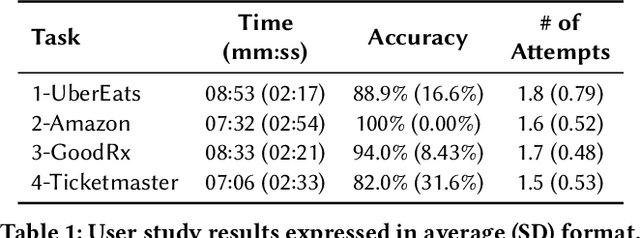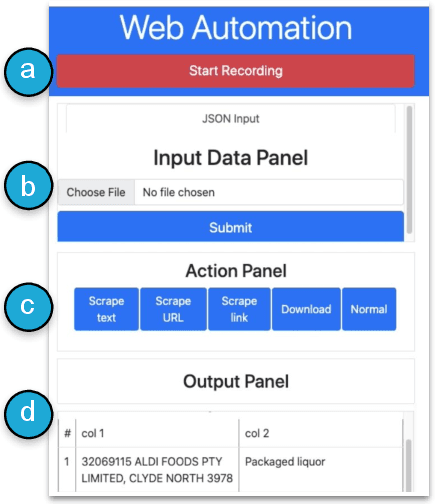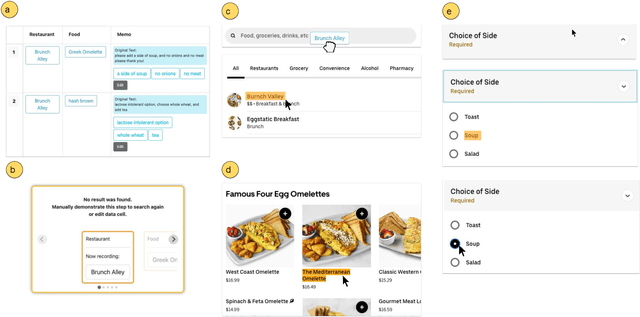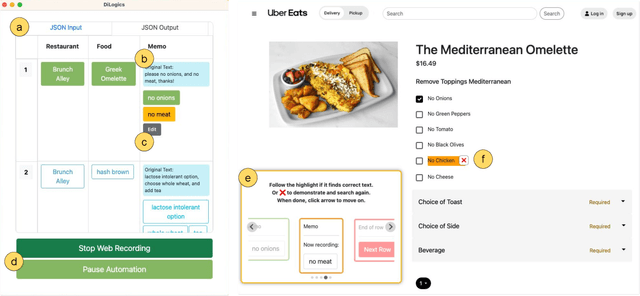Kevin Pu
Assistance or Disruption? Exploring and Evaluating the Design and Trade-offs of Proactive AI Programming Support
Feb 25, 2025Abstract:AI programming tools enable powerful code generation, and recent prototypes attempt to reduce user effort with proactive AI agents, but their impact on programming workflows remains unexplored. We introduce and evaluate Codellaborator, a design probe LLM agent that initiates programming assistance based on editor activities and task context. We explored three interface variants to assess trade-offs between increasingly salient AI support: prompt-only, proactive agent, and proactive agent with presence and context (Codellaborator). In a within-subject study (N=18), we find that proactive agents increase efficiency compared to prompt-only paradigm, but also incur workflow disruptions. However, presence indicators and \revise{interaction context support} alleviated disruptions and improved users' awareness of AI processes. We underscore trade-offs of Codellaborator on user control, ownership, and code understanding, emphasizing the need to adapt proactivity to programming processes. Our research contributes to the design exploration and evaluation of proactive AI systems, presenting design implications on AI-integrated programming workflow.
Cocoa: Co-Planning and Co-Execution with AI Agents
Dec 14, 2024



Abstract:We present Cocoa, a system that implements a novel interaction design pattern -- interactive plans -- for users to collaborate with an AI agent on complex, multi-step tasks in a document editor. Cocoa harmonizes human and AI efforts and enables flexible delegation of agency through two actions: Co-planning (where users collaboratively compose a plan of action with the agent) and Co-execution (where users collaboratively execute plan steps with the agent). Using scientific research as a sample domain, we motivate the design of Cocoa through a formative study with 9 researchers while also drawing inspiration from the design of computational notebooks. We evaluate Cocoa through a user study with 16 researchers and find that when compared to a strong chat baseline, Cocoa improved agent steerability without sacrificing ease of use. A deeper investigation of the general utility of both systems uncovered insights into usage contexts where interactive plans may be more appropriate than chat, and vice versa. Our work surfaces numerous practical implications and paves new paths for interactive interfaces that foster more effective collaboration between humans and agentic AI systems.
IdeaSynth: Iterative Research Idea Development Through Evolving and Composing Idea Facets with Literature-Grounded Feedback
Oct 05, 2024



Abstract:Research ideation involves broad exploring and deep refining ideas. Both require deep engagement with literature. Existing tools focus primarily on idea broad generation, yet offer little support for iterative specification, refinement, and evaluation needed to further develop initial ideas. To bridge this gap, we introduce IdeaSynth, a research idea development system that uses LLMs to provide literature-grounded feedback for articulating research problems, solutions, evaluations, and contributions. IdeaSynth represents these idea facets as nodes on a canvas, and allow researchers to iteratively refine them by creating and exploring variations and composing them. Our lab study (N=20) showed that participants, while using IdeaSynth, explored more alternative ideas and expanded initial ideas with more details compared to a strong LLM-based baseline. Our deployment study (N=7) demonstrated that participants effectively used IdeaSynth for real-world research projects at various ideation stages from developing initial ideas to revising framings of mature manuscripts, highlighting the possibilities to adopt IdeaSynth in researcher's workflows.
DiLogics: Creating Web Automation Programs With Diverse Logics
Aug 18, 2023



Abstract:Knowledge workers frequently encounter repetitive web data entry tasks, like updating records or placing orders. Web automation increases productivity, but translating tasks to web actions accurately and extending to new specifications is challenging. Existing tools can automate tasks that perform the same logical trace of UI actions (e.g., input text in each field in order), but do not support tasks requiring different executions based on varied input conditions. We present DiLogics, a programming-by-demonstration system that utilizes NLP to assist users in creating web automation programs that handle diverse specifications. DiLogics first semantically segments input data to structured task steps. By recording user demonstrations for each step, DiLogics generalizes the web macros to novel but semantically similar task requirements. Our evaluation showed that non-experts can effectively use DiLogics to create automation programs that fulfill diverse input instructions. DiLogics provides an efficient, intuitive, and expressive method for developing web automation programs satisfying diverse specifications.
 Add to Chrome
Add to Chrome Add to Firefox
Add to Firefox Add to Edge
Add to Edge